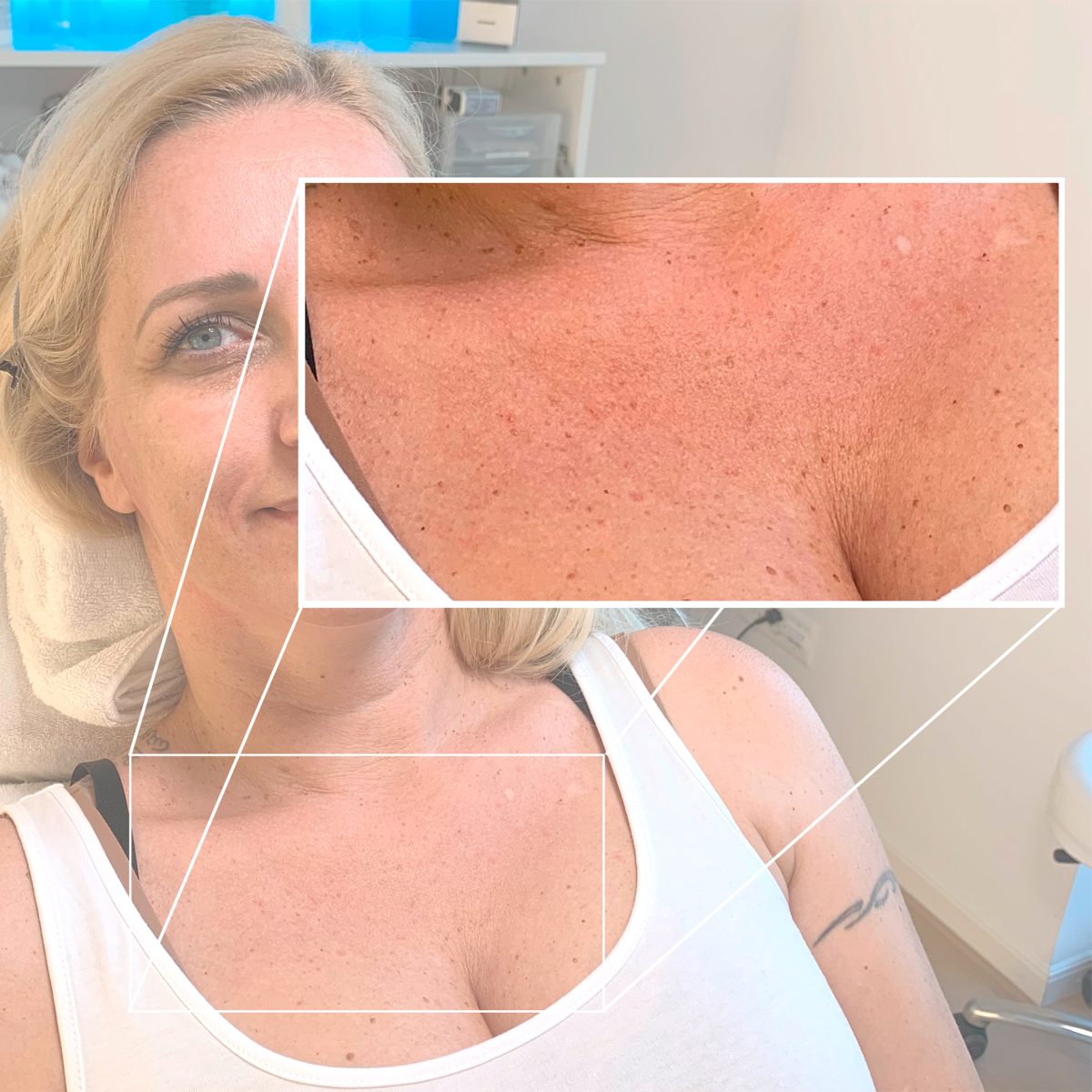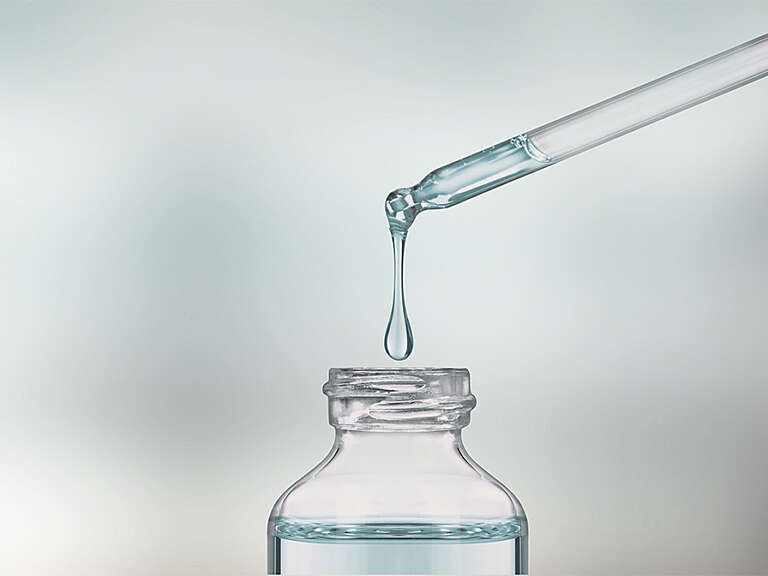The quality of our skin changes as we age. Collagen and elastin fibers are broken down over time, and the distribution and function of the body’s natural hyaluronic acid change. This makes the skin less elastic and supple, and it becomes increasingly dry. Hydration therapy restores the moisture balance of the skin and improves the skin's structure.
Why use hydration treatment for the décolleté?
Apart from the face and hands, the décolleté is the part of the body most exposed to wind, cold, water and sun. Hydration treatment for the décolleté counteracts these effects, providing the skin with a moisture boost from within.
How is hydration treatment for the décolleté carried out?
In hydration treatment, a fine, rounded cannula is used to inject low-viscosity hyaluronic acid, developed specially for this treatment, under a large area of the skin. This initially leads to an accumulation of moisture, which improves skin tone. The connective tissue cells in the body are then stimulated to produce connective tissue fibers (collagen), leading to a lasting improvement in the elasticity and structure of the skin.

Information on filler treatments
How soon after treatment can I resume my everyday activities?
The treatment lasts 30 minutes in total (consultation, information, preparation and administration of treatment) and you can then resume your usual activities with no restrictions on your social life. Any needle-entry points that remain visible for a short time can easily be hidden with make-up.
What do I need to be aware of after treatment with fillers?
The treatment is generally well tolerated. The doctor discusses possible side effects individually with the client before every treatment. They are generally mild and do not last long. Possible side effects include small, temporary bruises and brief redness or swelling at the injection site. Blood-thinning medicines such as aspirin should not be taken during the week before treatment as this may increase the risk of bruising. We also advise against treatment during pregnancy.






